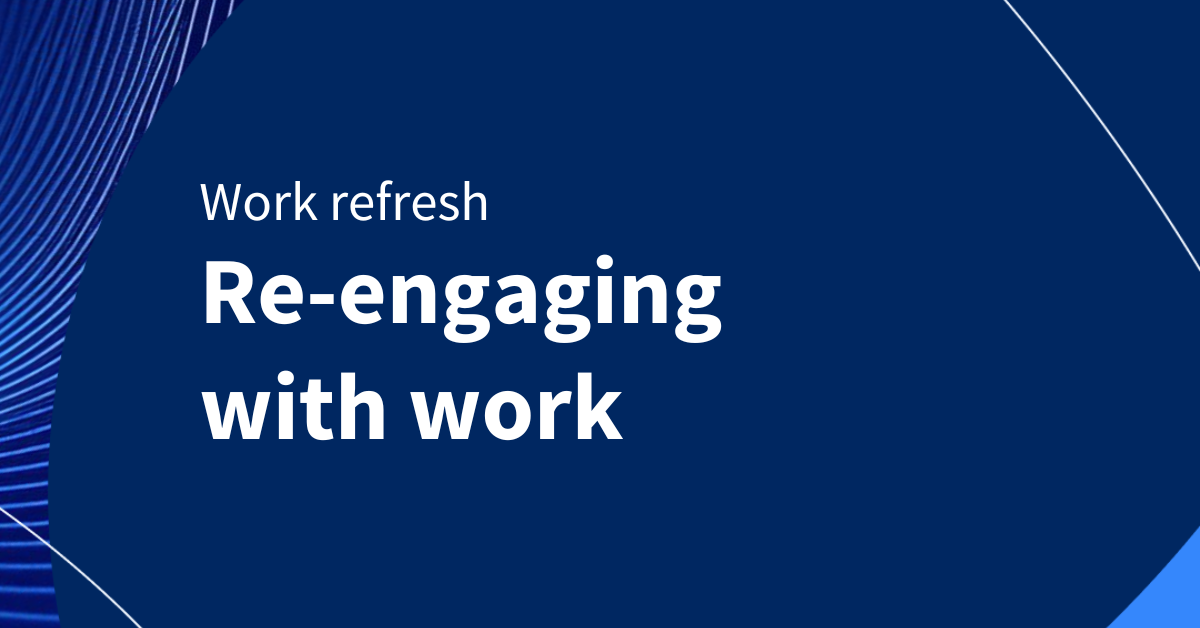In our previous edition, we delved into practical AI skills, focusing on simple but effective prompting methods that enhance the results of generative AI. Today, we’re shifting gears from technology to address an important aspect of professional life: re-engaging with your work when you feel disconnected. This discussion is crucial, especially in the current landscape where many individuals struggle to maintain consistent motivation at their jobs.
To start with, it’s important to acknowledge that feeling disengaged at work is a common experience. According to a report by Gallup, only 32% of workers in the United States feel fully engaged in their jobs. This statistic highlights that a significant number of employees are somewhat disengaged during their work hours, with 16% actively disengaged. These numbers suggest that if you’re feeling disconnected from your work, you’re certainly not alone.
Re-engaging with your work is not just beneficial for your career but also for your overall well-being. Gallup’s findings indicate that engaged employees tend to have higher levels of productivity and well-being. So, if you’re feeling burnt out, stressed, or even bored with your job, here are some practical strategies to help you reconnect with your work:
- Set and Maintain Boundaries
When you’re feeling unfulfilled or overwhelmed by your job, it can be tempting to let these negative emotions spill over into your personal life. Over time, this can lead to a complete withdrawal from your professional responsibilities. While stepping back occasionally might seem like a solution, it may ultimately hinder your long-term goals.
A more sustainable approach is to establish and uphold work boundaries. This strategy helps you manage negative feelings and encourages a healthier work-life balance. By creating space to disconnect from work during personal time, you can focus better when you’re on the clock.
Here are some ways to establish boundaries at work:
- Set consistent work hours and adhere to them.
- Incorporate breaks into your daily schedule.
- Agree to tasks only when you genuinely intend to follow through.
- Define clear email communication hours to prevent work from intruding on personal time.
- Prioritize Important Tasks
Disengagement often arises when tasks seem either trivial or overwhelming. If you’re feeling bored or exhausted, it’s helpful to evaluate the importance of each task and the effort they require. With limited time each day, it’s crucial to focus on tasks that genuinely matter.
To determine which tasks to prioritize, consider the following:
- Deadline and Impact: Focus on tasks with looming deadlines or those that significantly contribute to organizational or personal goals.
- Effort Level: Assess how much energy each task demands and allocate them to times when you’re most productive.
- Manageable To-Do List: Keep your daily task list concise, perhaps limiting it to three to five items of varying difficulty. Maintain a broader list elsewhere to avoid feeling overwhelmed.
- Cultivate Personal Growth Opportunities
A common reason for disengagement is the lack of meaningful involvement at work. It can be challenging to feel engaged if you don’t have strong work relationships, career development opportunities, or projects that stimulate you. In such cases, take the initiative to create and pursue your own growth opportunities.
Consider these strategies to build your career prospects:
- Seek a mentor within your organization for guidance and support.
- Network with professionals both in-person and online.
- Volunteer for projects outside your immediate team or department.
- Initiate personal projects to develop new skills.
Are You Ready to Reconnect?
Re-engaging with your work may require effort, but it’s a worthwhile pursuit that can lead to improved job satisfaction and productivity. Here are some additional resources that might help:
- Managing Stress: Yale University offers a course on "Managing Emotions in Times of Uncertainty & Stress," which provides strategies to handle workplace stress effectively.
- Improving Work Results: The University of Michigan’s "The Science of Success: What Researchers Know that You Should Know" can guide you in achieving better work outcomes.
- Achieving Goals: If you’re looking to accomplish personal and professional goals, the University of Pennsylvania’s "Achieving Personal and Professional Success Specialization" is a valuable resource.
In conclusion, feeling disengaged at work is a common experience, but it doesn’t have to be a permanent state. By setting boundaries, prioritizing meaningful tasks, and fostering personal growth opportunities, you can reignite your passion for your work and enhance your professional journey. For more insights and strategies on re-engaging with your work, check out the original article on LinkedIn.
That concludes this week’s discussion. Stay tuned for more informative content in our upcoming editions.
For more Information, Refer to this article.

































